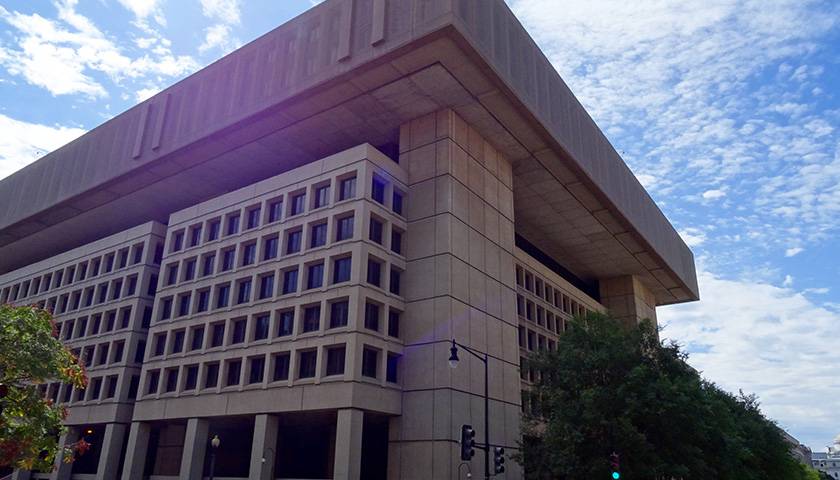by J. Michael Waller
The Biden Administration is readying to choose a location for a gigantic new FBI headquarters as the central government continues to expand.
Virginia and Maryland are competing for the project, with Democrats and Republicans of each state uniting against the other state, as they generally do with pork-barrel spending, to host the multibillion-dollar FBI complex.
The FBI’s 1960s fortress-on-stilts in downtown Washington, D.C., is a brutalist eyesore that is now crumbling from obsolescence and poor maintenance. The bureau has been pushing for a new headquarters complex for years. Objectively, the FBI does need a new, modern HQ for it to continue to function as it does.
Which brings us to the point: Does the United States want or need an FBI that functions the way it now does? If not, why build a new FBI headquarters?
Congress hasn’t debated this question. Neither has the country. Everyone has just assumed that the FBI needs a new central superplex on a huge piece of land that happens to be at least twice the size of the Pentagon, without thinking it through or even asking why. Congress just went along and gave the green light.
Before the new Congress appropriates or authorizes any further funding, it must answer some questions:
- Why does the FBI need a new headquarters complex so huge that it will dwarf the Pentagon?
- Is the FBI, with its top-heavy management and bloated personnel rolls, people who self-promote through a system that creates artificial demand for their work, too large already?
- Does the nation even want or need an FBI to continue operating business as usual?
- Does the FBI leadership still have the public’s trust?
- Have the FBI’s top executives tried to maintain or repair that trust by cooperating fully with the people’s elected representatives who execute congressional oversight?
- Has the FBI become a politicized enforcement arm of a super-politicized Department of Justice? If so, is it in the public interest that such an enforcement arm, and its personnel, remain physically close to the center of political power?
- Should headquarters be moved to another part of the country to reduce that politicization?
- Has the FBI morphed from an American law-enforcement agency into a European-style domestic intelligence apparat with police powers against the citizen?
- Is the century-old bureau even needed any more? Is it time for the FBI to go the way of America’s heroic first centralized intelligence entity, the Office of Strategic Services, in favor of something fresh with a new mission and ethos?
- Should America have a big, centralized domestic state security machine in the first place? Is such a committee for state security even constitutional?
- Could the FBI’s useful functions serve the public better if they were shifted to other agencies, and even in some cases returned to the individual states?
The answers to these questions will determine the purposes that govern the design, development, and construction of any new FBI headquarters complex. They will determine where in the country such a new headquarters would be built—or if it should even be built at all.
– – –
J. Michael Waller is senior analyst for strategy at the Center for Security Policy. He holds a Ph.D. in international security affairs at Boston University and for 13 years was the Annenberg Professor of International Communication at the Institute of World Politics.
Photo “FBI Headquarters” by MattCC716. CC BY-SA 2.0.




